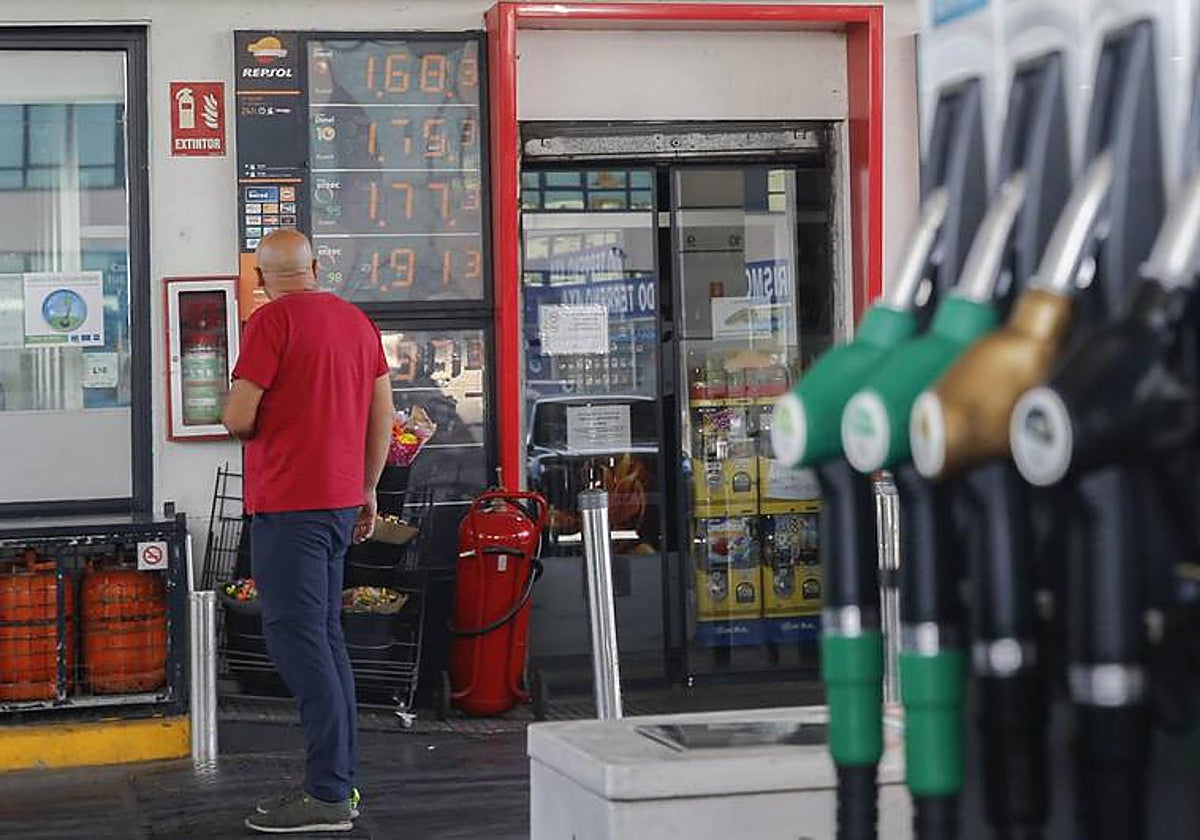Inflation climbs 2.6% in August, driven mainly by fuel prices
Prices rebound for the second month in a row after June's low in a summer season that has been affected by the increased costs at filling stations
José María Camarero
Madrid
Wednesday, 30 August 2023, 18:09
According to advance data from the Spain's INE national statistics Institute (INE), the year-on-year rate of inflation is to close August at 2.6%. This figure would make it the second consecutive monthly increase after July's 2.3% and after the low of 1.9% in June, which was the lowest figure for the whole of 2023.
Prices in August rose by 0.5% compared to July. The INE points out that the rise in inflation in August is explained by the increase in fuel prices and, to a lesser extent, liquid fuels, compared with the falls recorded in August 2022.
Filling up the tank has become increasingly expensive since the start of the summer: August ends with the price of petrol at 1.73 euros per litre, and diesel at 1.62 euros. On the other hand, electricity has helped to contain inflation in August. Although the price of electricity has risen compared to recent months, if we compare it with August last year, the increase has been lower. Then, in the midst of the energy crisis, electricity cost more than 200 and 300 euros per MWh, compared to slightly more than 100 euros in recent weeks.
Moreover, core inflation, which measures the daily cost of living without taking into account the most volatile products (electricity or unprocessed food) has seen a small respite by dropping a tenth of a percentage point, although it stands at 6.1%. This rate will be the reference for whether or not the tax reduction on basic foodstuffs, which the government has extended until 31 December, will be maintained. The executive has stated that if this falls below 5.5% in September the rebate will not be applied as of 1 November.
This is the main reason why the European Central Bank insists on the need to continue acting with interest rates to curb price rises. The monetary institution has anticipated that there is likely to be a further rise in interest rates, although it is not clear whether it will authorise this at its meeting in September or whether it will do so later this year.
For the Ministry of Economy, the inflation figures highlight that "economic policy measures mean that Spain has one of the highest levels of economic growth with the lowest levels of inflation" in the EU. The department headed by Nadia Calviño has pointed out that Spain has consolidated its position as one of the eurozone countries with the lowest inflation, which has fallen by almost eight per cent in the last year.
Analysts had anticipated that inflation would rise by a few tenths of a percentage point in August due to both the generalised increase in prices throughout the economy and the comparison effect with the figure for the same month last year. Twelve months ago, inflation was 10.5%, after setting a record in the summer of 2022. And it was already beginning to moderate, causing a 'step effect' where, as prices rise this year, the comparative rate with the previous year will continue to rise. This is likely to be the case in the coming months as inflation at the end of this year compares with the falls recorded in the last part of 2022. The Bank of Spain's estimates point to the end of the year with an average inflation rate of between 4% and 5%.
